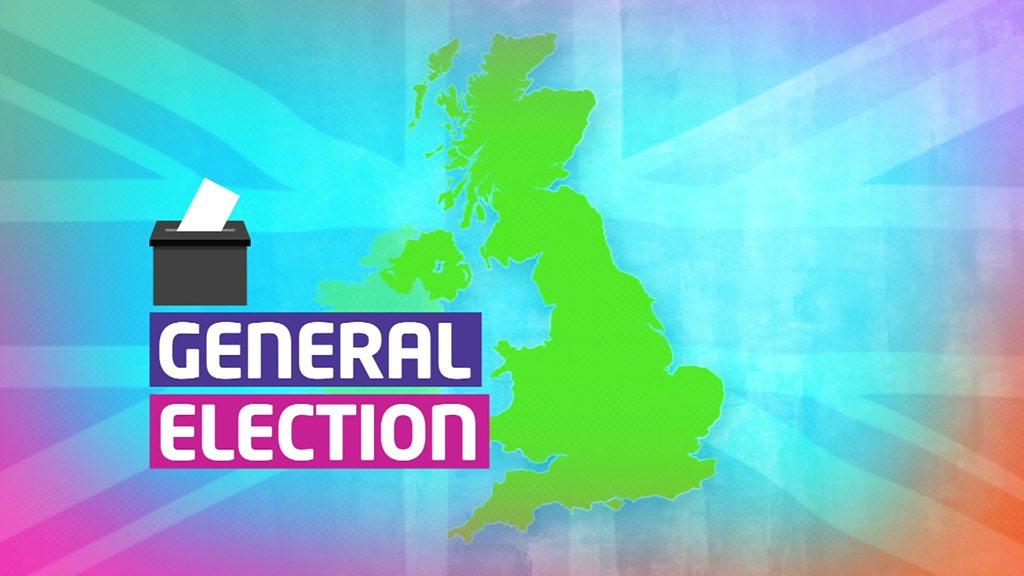What do prime ministers do after leaving the job?
- Published
- comments
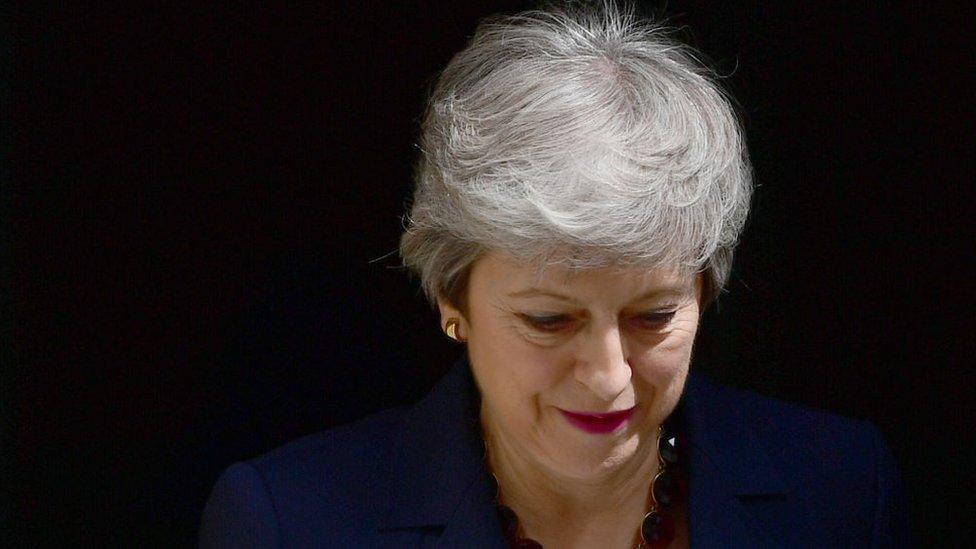
Theresa May has stepped down as prime minister, but what could she get up to next?
Theresa May will officially finish her time as UK prime minister later today.
This has got us wondering about what Mrs May will do next.
Politicians have gone on to do all sorts of different activities after their time in office.
Read on to find out a bit more about what some have gone on to do.
Sir Winston Churchill
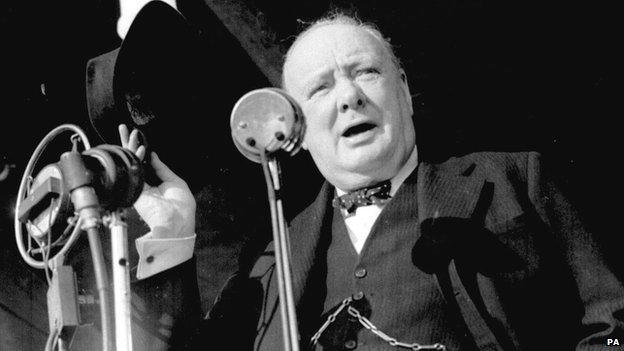
Winston Churchill giving a speech in 1945
Sir Winston Churchill is one of the most famous British prime ministers of the 20th Century.
He was prime minister from 1940-1945 and again between 1951 and 1955.
He remained as an MP for nine years after leaving Downing Street for the last time in 1955, but that wasn't all that he did.
He enjoyed painting and did a lot of travelling too. In 2014, one of his paintings called The Goldfish Pool at Chartwell - which he painted in 1932, before taking up the top job in UK politics - sold for almost £1.8m at auction.
As if that wasn't enough, he also produced a four-volume work called A History of the English-Speaking Peoples.
David Cameron
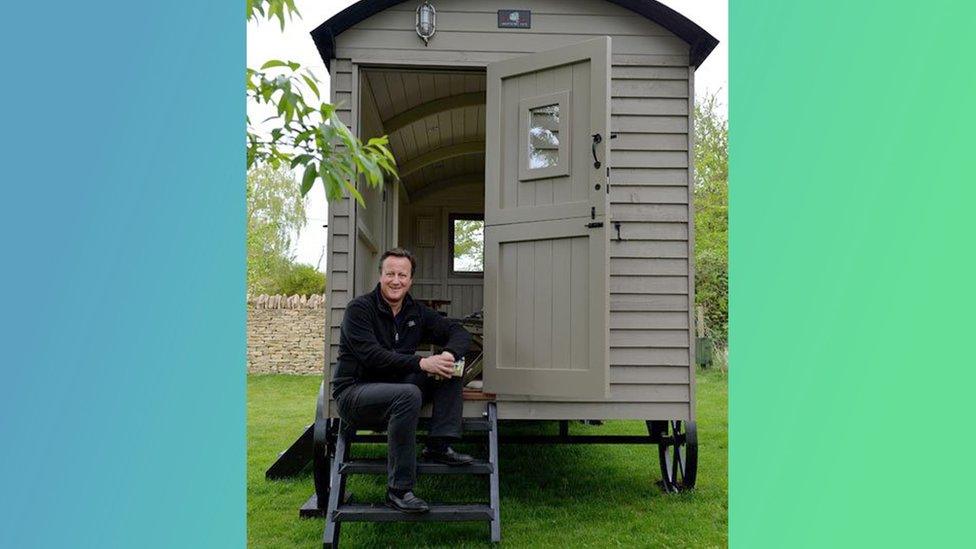
David Cameron was the prime minister before Theresa May took up the job.
He resigned after the UK voted to leave the European Union in 2016.
In April 2017, it was announced that he had installed a designer shed in his garden, in which he planned to write a book.
"My children want to use it as a Wendy house," he said. "I want to use it as a book-writing room and my son wants it as an alternative bedroom. So, quite a lot of competition!"
The shed apparently has a wood-burning stove and sofa bed inside, so it certainly sounds like a cosy place to write a memoir.
George Osborne
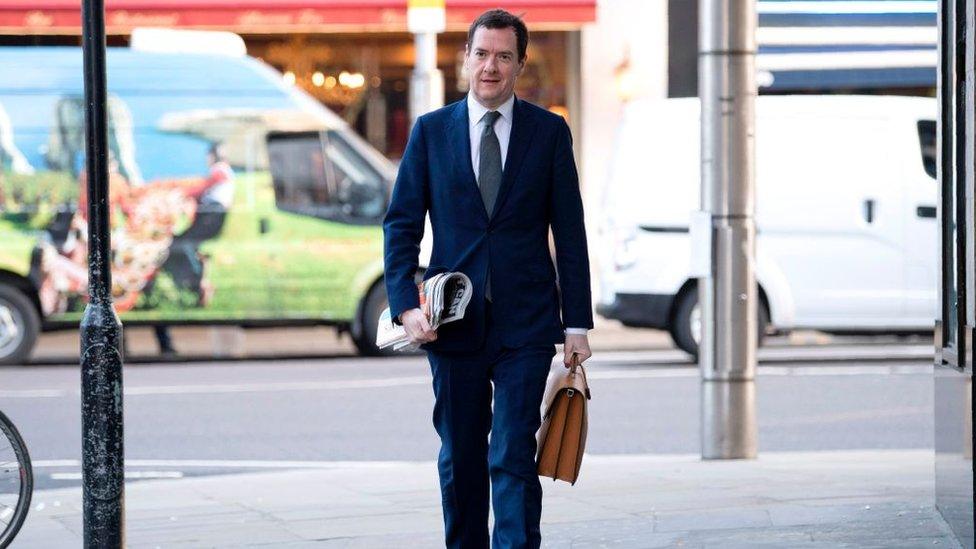
George Osborne became a newspaper editor in 2017
George Osborne wasn't prime minister but he was an important politician in the cabinet, as he had the job of chancellor - the government's main minister in charge of financial issues like tax.
He was removed from this position after six years in the job when Mrs May took over from David Cameron as the new prime minister, but he remained a member of Parliament for Tatton in the north-west of England.
In March 2017, it was announced that he would be taking up a new job - editor of the newspaper the London Evening Standard.
He said it was a "great honour" to do the job, after having ambitions when he was younger to become a journalist.
Ed Balls
WATCH: Highlights of Ed Balls on Strictly Come Dancing
Politicians have gone on to have fun in perhaps unexpected ways after their time in office too.
Former shadow chancellor and labour politician Ed Balls made a name for himself as a contestant on Strictly Come Dancing back in 2016!
He survived 10 weeks in the competition, making headlines with his comical routines alongside professional partner Katya Jones - especially the unforgettable performance of Gangnam Style.
He's not the only politician to enter the ballroom, though.
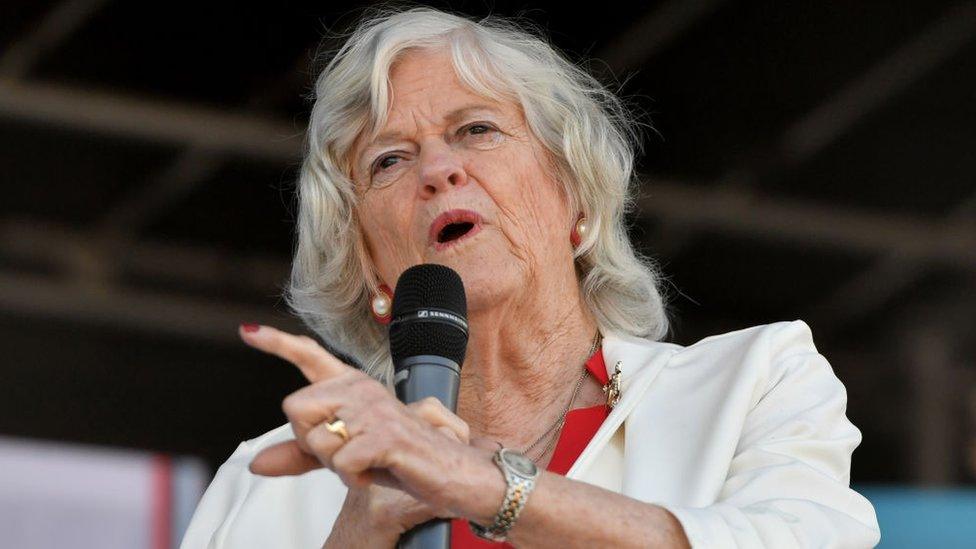
Ann Widdecombe was a contestant on Strictly back in 2010
Ann Widdecombe, who is currently serving as a member of the European Parliament, has also appeared on the show.
But this isn't the only entertainment show on which politicians have made an appearance.
Former Conservative MP Edwina Currie entered the jungle as a contestant on I'm a Celebrity...Get Me Out of Here back in 2014.
Harold Wilson
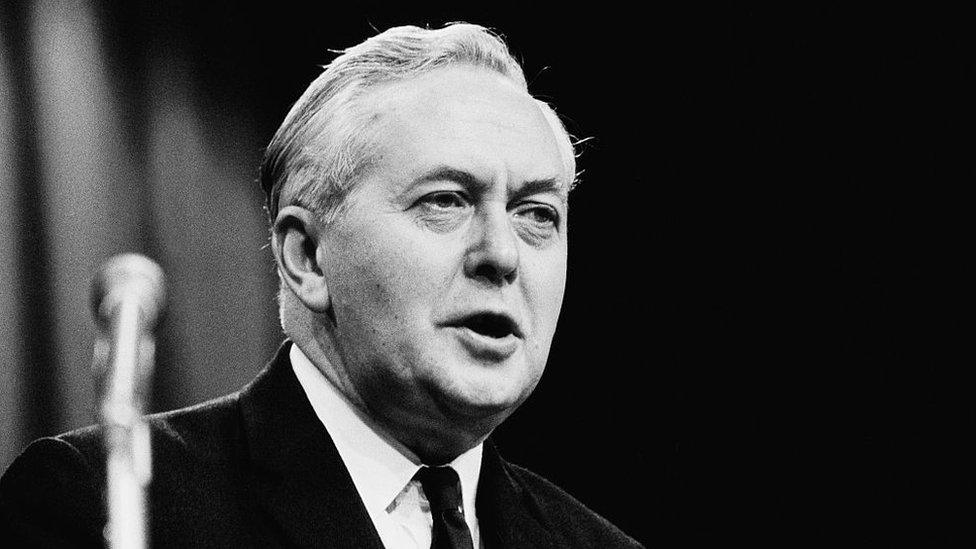
Harold Wilson was prime minister for eight years in total
Harold (later Lord) Wilson was British prime minister for the Labour Party from 1964 to 1970 and again from 1974 to 1976, winning four elections.
After his retirement from politics, he also appeared on TV screens - but it wasn't in the ballroom!
He became a chat show host of BBC Two's programme Friday Night, Saturday Morning, making it the only TV programme to be hosted by a former British prime minister.
The programmes aired on 12 and 19 October 1979 - three years after he had resigned as prime minister.
Alec Douglas-Home
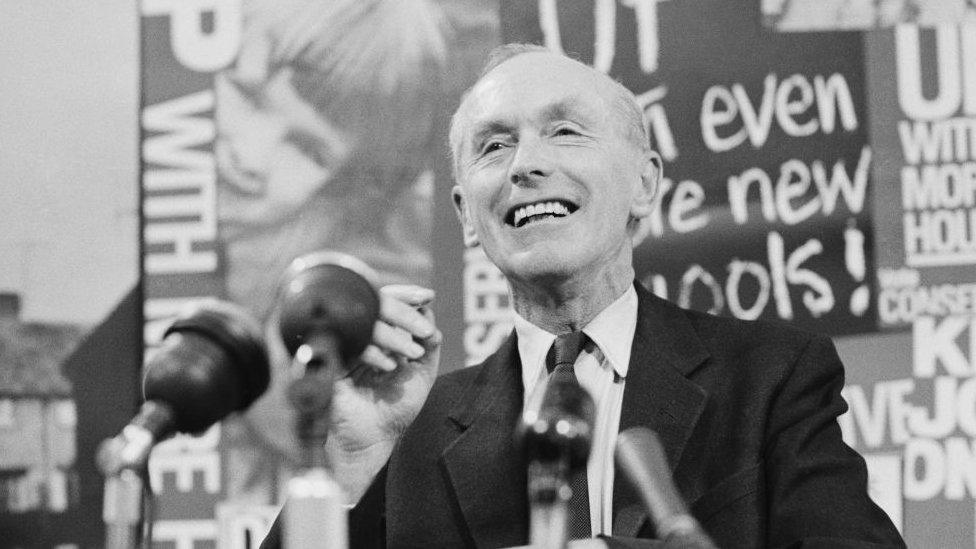
Alec Douglas-Home served as prime minister for less than a year
Conservative politician Alec Douglas-Home was British prime minister for 363 days, between 1963 and 1964.
His brief period as the UK's leader was the second shortest in the 20th Century.
After serving in the top job, Sir Douglas-Home went back into office to serve as the foreign secretary under Edward Heath from 1970 to 1974.
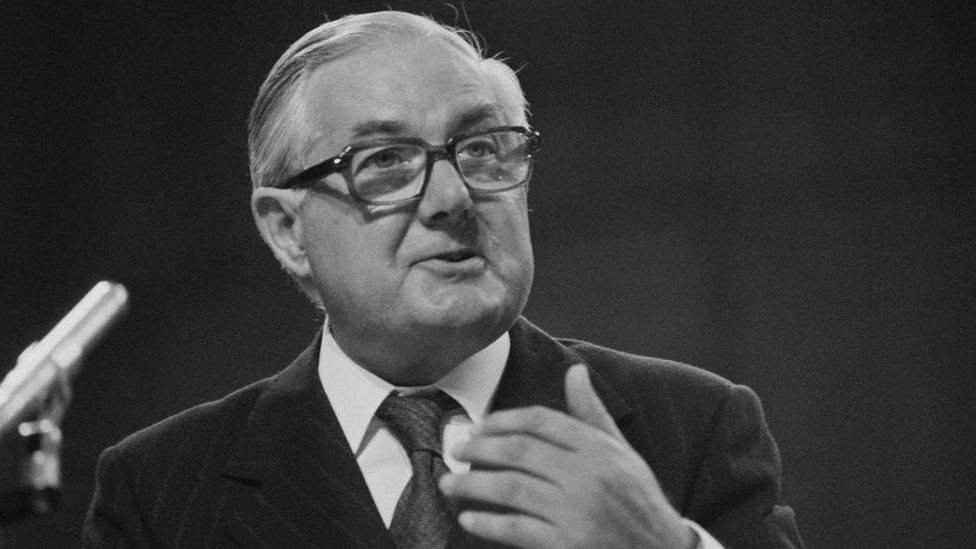
James Callaghan held three key positions in government before becoming prime minister
Similarly, James Callaghan - who was prime minister from 1976 to 1979 - stayed on as leader of the Labour Party until 1980.
He resigned shortly after and later became a life peer in the House of Lords.
He published his autobiography Time and Chance in 1987.
Callaghan was the only leader in the 20th Century to hold each of the four big offices of state: chancellor of the Exchequer, home secretary, foreign secretary and prime minister.
- Published23 October 2019
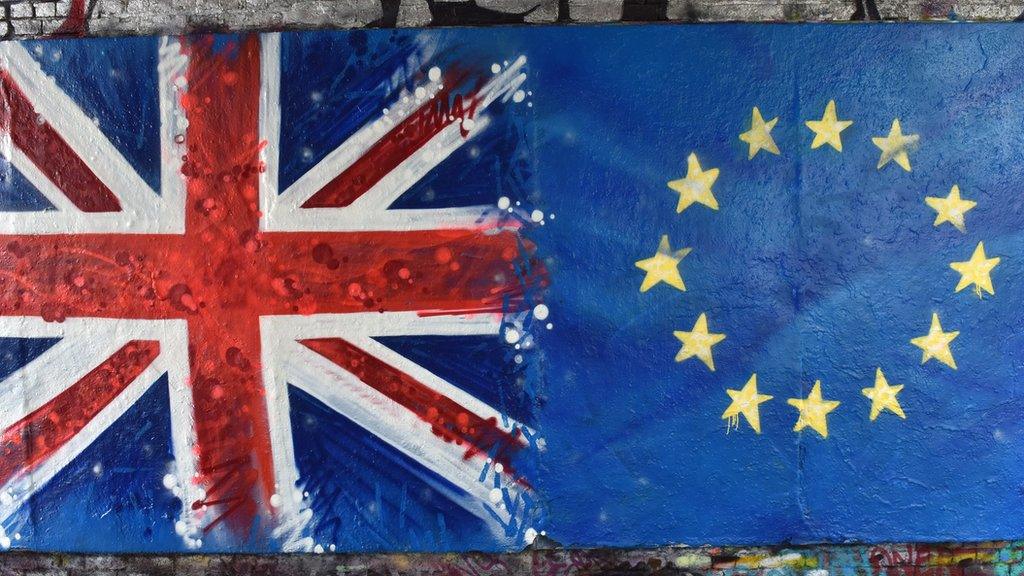
- Published8 May 2015
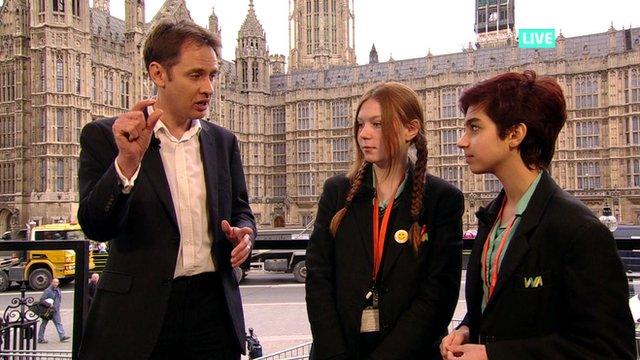
- Published3 December 2019
